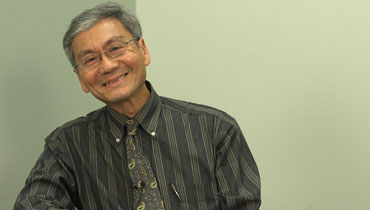
This project establishes a partial hybrid curriculum to shift the classroom-based presentation of several problematic grammatical points in Spanish to an online component that houses psycholinguistically-motivated educational tasks. Based on both theoretical and empirical support from second language acquisition research, these tasks are designed as digital videogames to encourage usage of crucial learner processes such as learner attention, depth of processing, levels of awareness, conceptually-driven processing, and working memory. The aim of these tasks is to promote deeper learning of these problematic concepts in Spanish known to present processing problems for English-speaking students of Spanish. Students are assigned these tasks to complete in advance of their practice in the classroom in order to establish a solid cognitive baseline for subsequent oral and written communication.
The results from the experimental study were indeed rewarding and fully support what I have envisioned from both a theoretical and empirical perspective. The pedagogical ramifications are solid.
Ronald Leow
The problematic grammatical structure addressed by Principal Investigator Ron Leow was the well-known verb gustar (to "like") that is well established to be relatively complex to speakers of English. To promote more robust learning of this problematic structure, Leow designed a task with a problem-solving format (a 3D maze designed by CNDLS) to promote a relatively deep level of processing and to encourage students to make hypotheses, rule formations, or connections to prior knowledge. A pilot test was performed in Fall 2013, and the results from the game as well as feedback from students were used to further develop and fine-tune the Gustar game. In Spring and Fall of 2014, Leow formally conducted an empirical study to address the effectiveness of this psycholinguistically-motivated educational videogame for the development of the complex Spanish gustar constructions, as compared to a teacher-centered classroom lesson. Seventy English-speaking learners of beginning Spanish were assigned one of three conditions—learner-centered (LC, played an educational videogame), teacher-centered (TC, attended a class), and maturational control (Control, no instruction)—in a pretest-posttest-delayed (2 weeks later) posttest experimental design. Learning outcomes were measured via one receptive and two controlled production tasks with old and new exemplars. Learning processes for the LC group (videogame) were tapped via think-aloud protocols (reactivity controlled). Results revealed that while both experimental groups improved across time, outperforming the Control group, the LC group outperformed the TC group on all tests except on the written recognition posttest and the oral production immediate posttest. In addition, the TC group decreased significantly on both productive assessment tasks by the delayed posttest. The think-aloud protocols revealed high depths of processing and levels of awareness (hypothesis testing and rule formation) and a conspicuous activation of recent prior knowledge, which are posited to have contributed to the superior retention of this difficult Spanish structure by the LC group. Due to the success of the project, the game has been implemented in the lower level language curriculum, and further games, like one for Por/Para, are being developed.
Aspects of this project have been presented at several refereed conferences (e.g., Virginia International University, SLRF, AAAL, AATSP) and a description of the gustar game has been published in Leow's book titled "Explicit learning in the L2 classroom: A student perspective" (Routledge, 2015).
Leow, Ronald P. "Promoting more robust L2 learning: One psycholinguistic-based CALL sample." Paper to be presented at the annual meeting of the American Association of Teachers of Spanish and Portuguese (AATSP) Conference, Denver, Colorado, July 2015.
Leow, Ronald P. & Allison Caras. "Effects of a psycholinguistically-motivated educational videogame on L2 learning outcomes and processes: The case of the complex Spanish 'Gustar' constructions." Presented at the annual meeting of GRAPHSE Conference, Washington, DC, April, 2015.
Leow, Ronald P., Luis Cerezo, & Allison Caras. "E-tutors, cognitive processes, and L2 development." Presented at the annual meeting of the American Association of Applied Linguists (AAAL), Toronto, Canada, March 21, 2015.
Leow, Ronald P. "Toward a Partial Hybrid Curriculum for Spanish Lower-Level Courses." Presented at the Second Language Research Forum Conference, University of South Carolina, Columbia, SC, October 2014.
Leow, Ronald P. and Allison Caras. "Foreign Language Learning and Gaming." Presented at the Teaching, Learning & Innovation Summer Institute, Georgetown University, Washington, DC, May 20, 2014.
Leow, Ronald P., Peter Janssens, Nelia Gustafson, William Garr and Allison Caras. "Using CALL for more robust L2 learning: A psycholinguistic approach." Presented at the Conference on Language, Learning, and Culture, Virginia International University, Fairfax, VA, April 11, 2014.
The Prospect Issue 3: "ITEL Thematic Spotlight: Games & Simulations" (page 12)